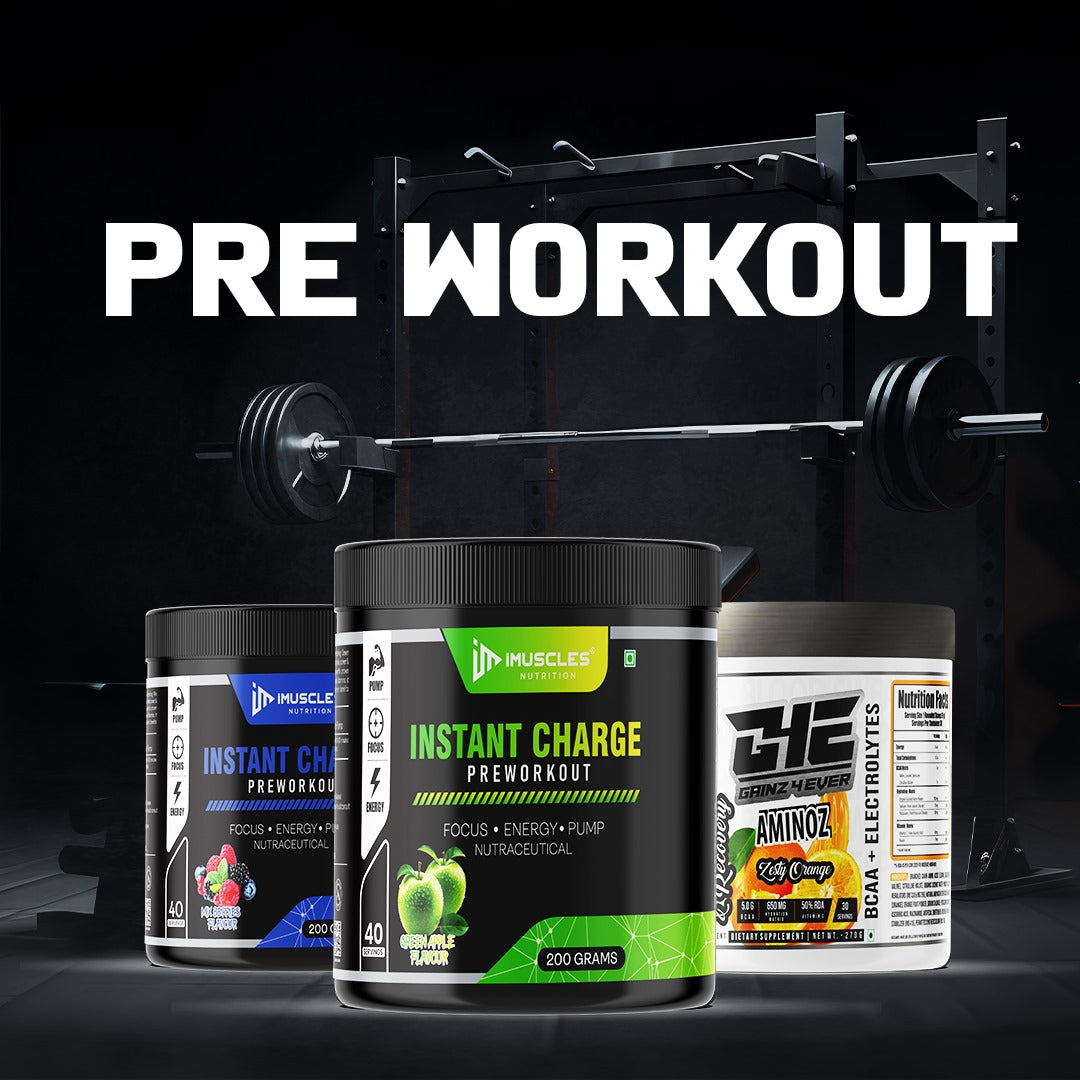
Is ‘Bulking’ a Dangerous Myth That’s Destroying Your?
iMuscles NutritionIs ‘Bulking’ a Dangerous Myth That’s Destroying Your?
In bodybuilding & fitness, the term "bulking is often key for those wanting to build muscle mass. Typically, bulking means eating a lot more calories, combined with weight training, to gain muscle. But lately, people are questioning if bulking is really the best way to gain muscle. Could it be harmful? Let's look at the facts about bulking & its potential risks.
What Is Bulking?
Bulking means eating a lot more—what you might call a "caloric surplus"—to help muscles grow. People into bodybuilding or fitness usually mix this with strict weightlifting routines to make their muscles bigger.
There are two main parts:
-
Bulking Phase: This is when you eat more calories than you burn. You focus on foods rich in protein, carbs, and healthy fats. This phase can last weeks or even months.
-
Cutting Phase: After gaining some muscle and weight, you switch to cutting. Here, you eat fewer calories & do more cardio to lose fat but keep the muscle.
The Science Behind Bulking: Is More Always Better?
At first glance, it seems simple—more calories should mean more muscle. But the human body isn't that straightforward.
1. The Risks of Excess Caloric Intake
Eating too many calories, without thinking about what kind they are, often leads to gaining fat instead of muscle. A study in the American Journal of Clinical Nutrition showed that eating a lot can make you gain fat more than muscle, especially if your diet isn't balanced well.
Gaining excess fat can lead to:
-
Higher chances of obesity
-
Increased risk of metabolic problems
-
More likelihood of heart disease
2. Hormonal Imbalances
Eating too much can mess up your hormones & affect health and performance. Extra body fat can change hormone levels like insulin, leptin, and testosterone. A high-calorie diet with lots of sugar might cause insulin resistance and problems like type 2 diabetes. More fat can also lower testosterone levels needed for muscle growth.
3. Nutrient Deficiency
Focusing only on getting enough calories might mean missing key nutrients. Lack of vitamins and minerals can hurt overall health & muscle recovery. For example, not getting enough vitamin D, magnesium, or omega-3s can mess up muscle function and recovery.
The Mental Health Impact
Bulking can affect mental health too. Eating tons of food can lead to bad eating habits or an unhealthy link with food. This could turn into binge eating or a fear of gaining fat—creating guilt & anxiety about food choices. The Journal of Eating Disorders found a link between strict diets like heavy bulking and higher rates of eating disorders.
Is There a Better Way?
With all these risks from traditional bulking methods, it's worth thinking about safer ways to build muscle:
1. Lean Bulking
Rather than a huge caloric surplus, lean bulking means eating just a little more—about 250-500 extra calories each day. This helps boost muscle while keeping fat gain in check. Research in the Journal of the International Society of Sports Nutrition suggests a moderate caloric surplus works well without adding too much fat.
2. Focus on Macronutrient Balance
Balance your intake of proteins, carbohydrates & fats to improve muscle building while being healthy overall. Stick to whole foods like lean meat, grains, fruits & veggies for balanced nutrient intake.
3. Incorporate Periodization
Periodization means cycling through different stages—bulking, cutting, and maintenance—of training and nutrition plans over time rather than staying in one phase too long. This supports growth while reducing prolonged risks from bulking.
Conclusion: Rethinking the Bulking Myth
Bulking might seem like an easy way to gain muscle fast but has big risks for physical & mental health due to extra caloric intake leading potentially hormonal imbalances or nutrient deficits plus possible disordered eating patterns.
Muscle gains need careful planning around overall well-being prioritizing leaner strategies emphasizing nutrient-rich foods along adopting periodized cycles over long-term excessive intakes which cumulatively yield better outcomes harmonizing body/mind welfare holistic nurturing real strength beyond mere muscularity alone ensuring firm lasting results benefiting true vitality wellness above transient appearances (‘quick fixes’), meaningfully!

